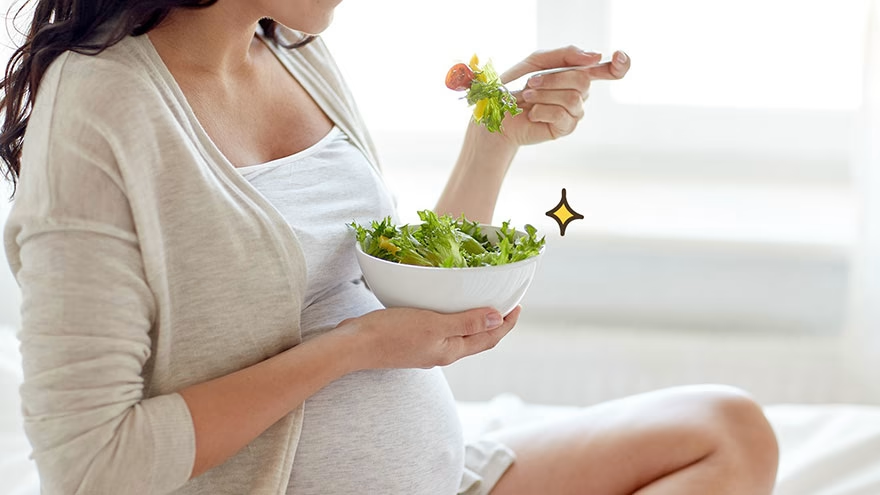
Journaling
Keeping a food journal can help you track the amount of protein you eat as well as foods that are high in the nutrients you need. A paper journal is portable and can go with you anywhere, but if you like tracking things on your computer, you can track your daily food intake on the U.S. Department of Agriculture's MyPyramid for Moms website.
The First Two Months
In the first two months, your baby is at a critical development stage, growing from an embryo to a fetus with miniature organ systems.Follow the Food and Drug Administration's recommended food guide pyramid, but also plan on eating enough to gain four to five pounds. For veggie lovers, make a point to get enough protein and calcium.
It is a good idea to stop drinking coffee and sodas with caffeine. Your sleep schedule may be thrown off and anything that might interfere with it should be avoided. Do not drink alcohol and avoid high levels of vitamin A.
At this point in your pregnancy, it is a good idea to create a diet plan with your doctor.
Folate
Make a point to get 0.4 mg of folate day by day. Low levels of folate can cause spinal defects, particularly in the first two months of development. Numerous vegetables are high in folate, including spinach, endive, asparagus, broccoli and mustard greens.Adzuki beans, cowpeas and cranberry beans are also good vegetarian sources of folate. You can also increase your folate intake in a vitamin supplement and by eating breakfast cereals enriched in folate.
The Next Seven Months
In the next seven months, it is extremely important to have a sufficient caloric intake, drink eight to 10 cups of water per days and increase your fiber intake to prevent constipation. Your iron needs increase drastically. Iron helps produce hemoglobin and make healthy red blood cells, which feed you and the baby oxygen.You will need 30 mg per day, a very large amount to get even when eating meat, so many women take a supplement. Vegetarian iron-rich foods include spinach, potatoes and leafy greens. Nutrient C can help the retention of iron into the circulatory system, so consider eating nutrient C rich nourishments when you take your iron enhancement or eat food sources that are goods sources of iron.
Make sure that your diet meets your other nutritional needs, particularly in zinc, calcium, vitamin C, vitamin B12 and vitamin D. Check with your doctor to make sure you are gaining enough weight and to see if you should take any supplements.
You Might Also Like :: How to Be a Lamaze Coach
Save for later
Found this helpful?
Pin this article to your Pinterest board and come back to it whenever you need a reminder.
Save to Pinterest


